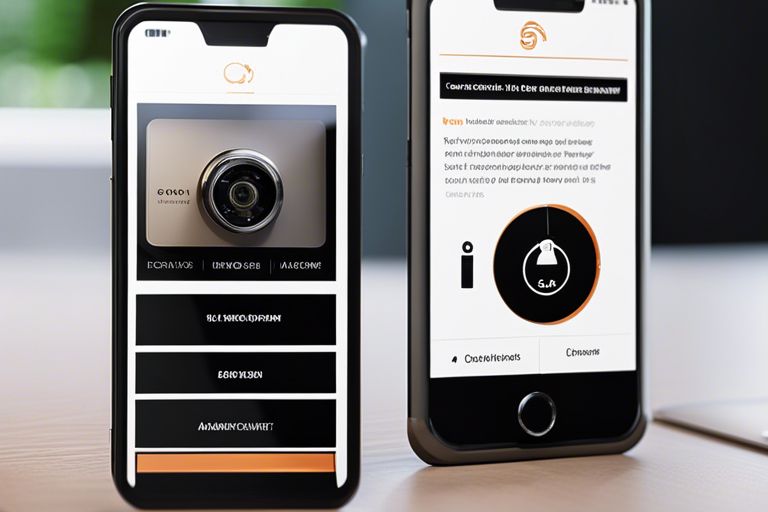Securing your small business is a top priority in today’s ever-evolving digital landscape. Conducting a security audit is crucial to identify vulnerabilities, protect sensitive information, and maintain trust with your customers. In this guide, we will walk you through the important steps to effectively conduct a small business security audit, ensuring your business remains resilient against potential threats.
Key Takeaways:
- Identify Vulnerabilities: Conduct a thorough analysis to pinpoint areas where your small business security may be at risk.
- Review Access Controls: Evaluate who has access to sensitive information and systems within your organisation.
- Update Security Software: Regularly update antivirus, firewall, and other security software to protect against emerging threats.
- Train Employees: Provide security training to your staff members to educate them on best practices and potential risks.
- Implement Data Backup Procedures: Establish protocols for regular data backups to ensure critical information can be recovered in case of security breaches.
Preparing for Your Security Audit
Assembling Your Security Audit Team
Before conducting a security audit for your small business, it is crucial to assemble a team of experts who are well-versed in cybersecurity measures. This team should include IT professionals, data security experts, and key stakeholders from different departments within your organisation. By bringing together individuals with diverse skill sets, you can ensure a comprehensive and thorough security audit.
Outlining Your Audit Goals and Scope
When preparing for a security audit, it is necessary to clearly outline your goals and define the scope of the audit. Identify the specific areas of your business that you want to assess for security vulnerabilities, such as network security, data protection, or employee training. Additionally, set realistic objectives for the audit, such as improving compliance with data protection regulations or enhancing overall security posture.
Conducting the Security Audit
Physical Security Assessment
During the physical security assessment, it is crucial to evaluate the security measures in place to protect your small business premises. Look into access control systems, surveillance cameras, lighting, and security personnel. Assess the effectiveness of these measures in deterring intruders and preventing unauthorised access to sensitive areas.
Digital Security Evaluation
When conducting a digital security evaluation, focus on assessing the vulnerabilities in your small business’s digital infrastructure. This includes examining your network security, data encryption, password policies, and software updates. Identify potential weak points that may be exploited by cybercriminals and take steps to address them before they lead to a security breach.
It is important to regularly update your cybersecurity measures to stay ahead of evolving threats. Implementing multi-factor authentication, regular security training for employees, and continuous monitoring of your digital systems can enhance your small business’s overall security posture.
Analysing Audit Findings
Identifying Security Weaknesses
During the security audit process, it is crucial to identify any security weaknesses within your small business’s infrastructure. This could include outdated software, lack of employee training on cybersecurity best practices, or vulnerable access points. By pinpointing these weaknesses, you can take proactive steps to strengthen your overall security posture.
Prioritizing Risk Factors and Threats
When analysing the audit findings, it is imperative to prioritise risk factors and threats based on their potential impact on your business. This involves assessing the likelihood of each threat occurring and the level of damage it could cause. By prioritising these risks, you can allocate resources more efficiently to address the most critical vulnerabilities first.
- Identify and classify different types of threats based on severity and likelihood of occurrence.
- Assess the potential impact of each threat on your small business operations and data.
Any security weaknesses identified during the audit should be addressed promptly to mitigate risks and enhance your business’s overall security defences.
Implementing Enhancements
Tips for Addressing Physical Security Issues
When addressing physical security issues in your small business, there are several key tips to keep in mind. Firstly, ensure all entry points are secure with strong locks and consider installing security cameras to monitor any suspicious activity. Secondly, restrict access to sensitive areas by implementing key card or biometric entry systems. Lastly, conduct regular security audits to identify and address any vulnerabilities in your physical security measures.
- Secure all entry points with strong locks
- Consider installing security cameras
- Restrict access to sensitive areas
- Conduct regular security audits
Strategies for Strengthening Digital Security
With respect to digital security, there are several strategies you can implement to strengthen your small business’s defences. Begin by ensuring all devices are equipped with up-to-date antivirus software and firewalls. Additionally, regularly update passwords and consider implementing multi-factor authentication for an added layer of security. Encrypt sensitive data both in transit and at rest to protect it from potential breaches.
Implementing these strategies can help safeguard your small business against cyber threats and ensure the protection of your digital assets. Be mindful of, staying proactive and vigilant is key to maintaining a strong digital security posture.
Maintaining Ongoing Security Vigilance
Establishing Regular Audit Schedules
Establishing regular audit schedules is crucial for maintaining the security of your small business. By setting specific dates for security audits, you can ensure that all aspects of your security measures are regularly reviewed and updated. This proactive approach can help you identify potential vulnerabilities before they are exploited by cyber threats.
Keeping Up with Security Trends and Technologies
Keeping up with security trends and technologies is important to stay ahead of potential security risks. As cyber threats continue to evolve, it is important for small businesses to be aware of the latest trends in cybersecurity and incorporate new technologies to enhance their security measures. By staying informed and adapting to the changing landscape of cyber threats, you can better protect your business and customer data.
Conducting a Small Business Security Audit
Conducting a small business security audit is crucial for ensuring the protection of your company’s assets, data, and reputation. By following the steps outlined in this guide, you can identify potential security vulnerabilities, implement necessary security measures, and proactively safeguard your business against threats. Regularly reviewing and updating your security policies and procedures will help minimise risks and keep your business secure. Do not forget, prevention is always better than dealing with the aftermath of a security breach, so make sure to prioritise the security of your small business by conducting frequent security audits.
FAQ
Q: Why is conducting a small business security audit important?
A: Conducting a small business security audit is important to identify vulnerabilities in your systems and processes, and to ensure that your business and customer data is protected from cyber threats.
Q: What are the key steps involved in conducting a small business security audit?
A: The key steps in conducting a small business security audit include identifying assets to be protected, assessing risks, evaluating current security measures, implementing improvements, and regularly reviewing and updating security protocols.
Q: How often should a small business security audit be conducted?
A: Small business security audits should ideally be conducted at least once a year, or more frequently if there are major changes in your business operations or IT infrastructure.
Q: What are the common challenges faced when conducting a small business security audit?
A: Common challenges faced when conducting a small business security audit include limited resources, lack of expertise, resistance to change, and keeping up with evolving cyber threats and technologies.
Q: What are the potential benefits of conducting a small business security audit?
A: The potential benefits of conducting a small business security audit include improved protection against cyber attacks, enhanced business continuity, increased customer trust, compliance with regulations, and cost savings in the long run by preventing security breaches.






